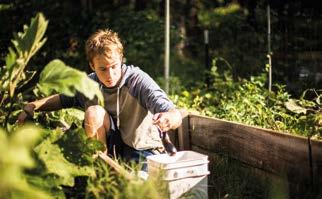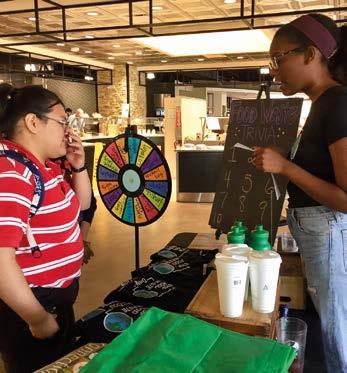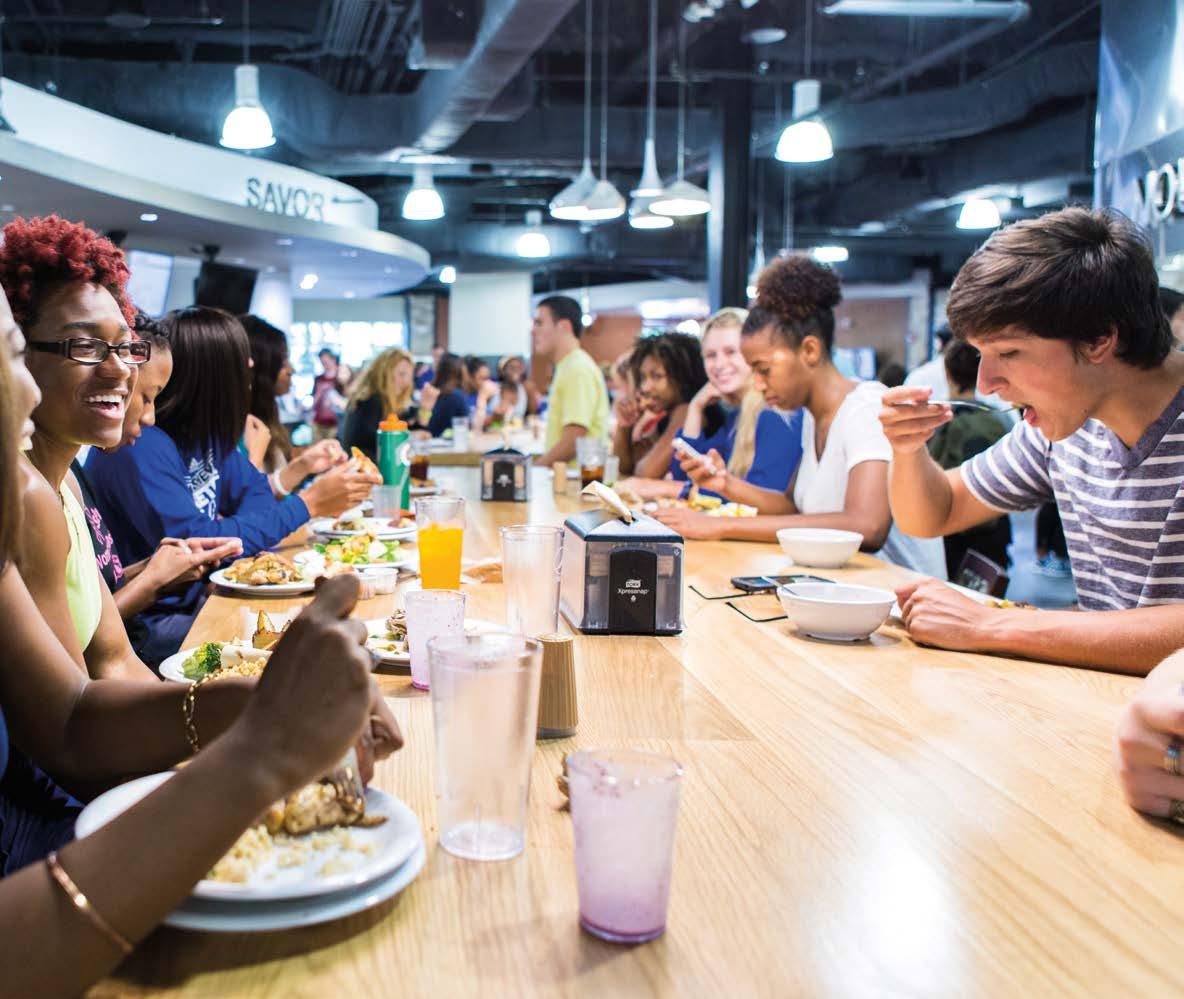
5 minute read
Interview: The University of North Carolina Asheville Dining Services
SERVING UP SUSTAINABILITY
UNC Asheville Dining NOURISH THE COMMUNITY Sustainable Business Magazine speaks to Meghan Ibach, Sustainability Coordinator at UNC Asheville Dining Services, about sustainable campus dining, working with the local community, and sharing best practices.
Advertisement

‘Foodtopia’ is what residents and restaurateurs have christened the culinary scene in Asheville, North Carolina. This small city of under 90,000 people nestled in the Blue Ridge Mountains has long been a tourist attraction for its arts, its architecture, and its hiking – but Asheville has also been recognized for several years for a commitment to locally-produced, sustainable food. So it’s natural that the local university, the University of North Carolina Asheville (UNC Asheville), would also go above and beyond when it comes to food.
It starts with fairness. “We received our Fair Trade certification in 2017,” explains Meghan Ibach, Sustainability Coordinator
at UNC Asheville Dining Services. “We were the first campus in North Carolina to receive that mark. In practice, that means we have a strong committee of students, faculty, and staff that meet every semester, throughout the semester. We also average four or five education events about Fair Trade per semester.”
Several targeted programs exist on-campus, like the ‘blended burger’. “It’s a way for people to eat meat and also reduce their carbon footprint at the same time,” explains Ms. Ibach. “It’s local, humanely-raised beef blended with locally sourced mushrooms in a two-thirds ratio.”
UNC Asheville also has a hydroponic wall where they grow all their own mint and

basil, a highly-rated meat-free restaurant, a compost program, and an aggressive waste reduction policy which has drastically reduced food waste since it began several years ago.
Then there’s local partnerships. UNC Asheville Dining Services work with Food Connection, a community resource in Asheville which collects surplus food from the university, local restaurants and institutions and distributes it to those in need. “Food Connection is an amazing resource in our community,” says Ms. Ibach. “It’s all food that we are no longer able to use in our own programs because our company has a three-day window for liability reasons. But if it’s kept safe and handled properly, we


actually have up to seven days to donate it. So far, we’ve served well over 50,000 meals since we’ve started. We’ve also been able to streamline the system by which we record the amount of food going to Food Connection. They are then also able to use that data when applying for grants and funding, because they can prove the value of their program.”
BEST PRACTICES
UNC Asheville Dining Services is operated by Chartwells Higher Education. Chartwells is a food service provider to almost 300 schools and college campuses across the United States, and the company has its own corporate-level sustainability commitments, including a commitment to source Fair Trade products at every location, serving healthier, slower-growing chickens, and sourcing more sustainable fish.
All of UNC Asheville Dining Services’ sustainability efforts are unified under a program called Farm-Forward Eating and Environmentally Driven Sustainability, or FEEDS.

“FEEDS includes on-campus and off-campus initiatives, sourcing, waste reduction, and everything in between,” explains Ms. Ibach. “Part of our FEEDS program involves identifying where products come from, specifically targeting those within 250 miles of us. We’ve started to put a large emphasis on food coming from the Southeast, because we’re a lot closer to Florida or Georgia than we are to California or Mexico. We have a color-coded three-tiered system to identify different products.”
In March 2019, UNC Asheville Dining Services, in partnership with the UNC Asheville Office of Sustainability, coordinated a sustainable dining summit to share the lessons learned from FEEDS. “We had over 21 institutional representatives from colleges and corporate offices, consisting of dining directors, executive chefs, sustainability coordinators, and sustainability officers that work on the university side, who attended this two-day conference here at UNC Asheville,” says Ms. Ibach. “The summit covered best practices, where we answered ques




tions on what we do. What does it mean to have a sustainable dining program? How can you improve your own on your campus? It was a true partnership, as members attended from our parent company, Compass Group, as well as Sodexo and Aramark, who are competitors. We think this shows sustainability is not a competition, but a reality we must collectively push forward. We weren’t sharing trade secrets; we were sitting down across the table and saying we all hold these positions that could make a really big difference.”
HEALTHY FUTURE
Next, UNC Asheville Dining Services plans to increase plant-based options and education around plant-based eating, as well as continue to make food waste a top priority. “There is always more work to be done, and increasingly people want to know more about their food system to inform their choices. In partnership with the school, a student recently began to analyze purchases from two different months to gain insight on how sustainable we really are, and hopefully will shed light on where else we can move the needle,” Ms. Ibach said. “We want to share our story! With sustainability, if you’re not marketing and telling your story, you’re only doing half the job. “When people learn why you do it, how you’re taking action and what they can do to better their impact, this will create change and lead us into a positive, healthy future.” c









